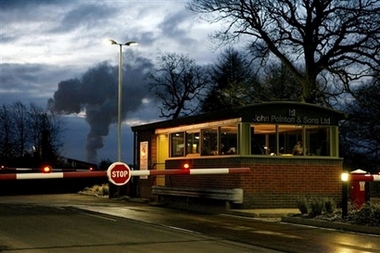European farmers watch for flu
(AP)Updated: 2007-02-05 21:24
AMSTERDAM, Netherlands - Poultry farmers around Europe were on guard Monday against the possible spread of bird flu across the North Sea from infected Britain, fearing the disease could be carried by wild birds.
Dutch farmers were told to keep their birds indoors or behind chicken wire and protective netting. "Double" disinfection procedures were imposed on shipments of birds and eggs to or from England.
"The general picture is that farmers are obeying the rules," said Roel Vincken, spokesman for the Dutch Agricultural Inspection Service.
The European Union's top health official urged veterinary authorities around the EU to step up vigilance, warning that further outbreaks were likely in the months ahead.
"The virus is still around," EU Health Commissioner Markos Kyprianou told reporters. "We should never feel that we are safe, in the sense of ... eradicating it, but we have a system in place, we have to remain vigilant and we have to remain ready to act."
World health experts have been tracking the H5N1 strain of bird flu out of concern it could mutate into a form that is easily transmissible between humans and spark a flu pandemic.
Kyprianou said he would hold talks with health experts later Monday to assess whether further EU-wide action would be necessary to help contain the outbreak in Britain. Veterinary experts were to meet on Tuesday to assess EU animal safety measures.
"We should remind ourselves that the virus is around, so we will have probably more outbreaks around the European Union in the future, like last year."
The European Commission said Saturday tests by an EU lab have confirmed that some 2,500 turkeys at a British poultry farm have died of the H5N1 strain of bird flu.
The outbreak occurred on a holding of 159,000 turkeys near Lowestoft about 130 miles northeast of London, it said. British officials on Sunday announced new restrictions on movement near the farm where the virus was found.
In France, which was hit a year ago by the lethal virus strain at a turkey farm in the southeast, Agriculture Minister Dominique Bussereau ordered the national food safety agency to assess the risks of another round of infection, and to issue a report later Monday.
Bussereau said France should adopt "very strong vigilance but no panic" in response to the British outbreak. "We should not dramatize the situation but we must tell the truth," he said on RTL radio.
The appearance of the disease last month in Hungary was the first known case of the H5N1 strain within the European Union since August 2006.
Kyprianou said the cause of the British outbreak was still being sought, but the Dutch agriculture minister, Cees Vreeman, said it could not be ruled out that the disease originated with wild birds.
The Netherlands, a low-lying country with marshy shorelines and internal lakes, is on a major European migration path, and would be particularly vulnerable to disease carried by wild birds.
In recent years the Dutch government has been among the most aggressive in Europe in ordering birds indoors to prevent infection from migratory birds and transport bans when needed to prevent the disease spreading among commercial fowl.
Restrictions imposed after a scare last summer were only relaxed in November.
An exemption was made for birds vaccinated against H5N1 - including most birds in zoos. Poultry could be freed from confinement a week after completing a course of vaccinations, the Dutch ministry said.
The worst outbreak of bird flu in the Netherlands was three years ago, although it was a different strain, H7N7, which infected 89 people and killed one person. More than 30 million chickens were slaughtered, hitting one of the country's biggest export industries. The government even ordered children's pet birds be handed over for gassing to control the disease.
|
||
|
||
|
|

